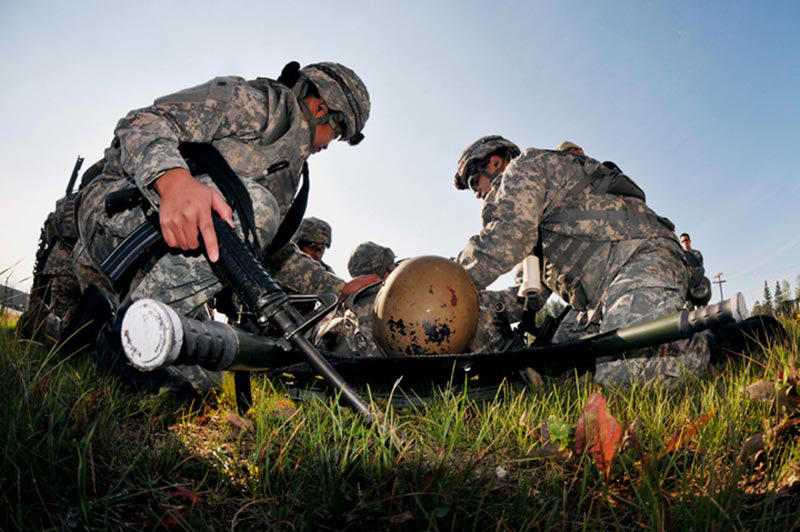Techniques for Building Trust
Building trust takes time. You shouldn’t expect to build trust instantaneously. Rather, building trust requires exhibiting a pattern of behavior through the consistent use of techniques. These techniques can be used to build goodwill, a positive personal relationship with others, or simply create personal credibility and a trust-based working relationship. Select each technique to learn more.
Demonstrate Proficiency

To demonstrate proficiency, you should:
- Be professional.
- Share cultural and geopolitical knowledge with Soldiers.
- Teach tactical and technical skills to others.
By demonstrating proficiency, you’ll build trust by showing Soldiers that they can expect you to be professional and exhibit the skills necessary to lead tactically.
Demonstrate Firmness and Fairness

Demonstrating firmness and fairness ensures that individuals don’t perceive that you’re untrustworthy because your actions are biased or compromised. The following techniques will help you demonstrate firmness and fairness:
- Promote clear and well-defined roles, rules, and procedures.
- Right your wrongs; more than apologize, make up for mistakes that you’ve made or take action to make sure a wrong is remedied.
- Be quick to give credit to those who deserve it.
Be Accessible and Open

There are several ways you can be accessible and open:
- Keep people informed of actions and results.
- Engage other members in activities and objectives.
- Share information when possible.
- Be available to help, advise, coach, or support others.
- Be approachable.
- Keep others informed of your intent.
- Keep an open mind when approached with new ideas.
These techniques demonstrate that you’re willing to listen to others and consider their opinions and skills valuable. By being open and accessible, your peers, subordinates, and leaders will more readily come to you and trust you to act in a professional and supportive manner.
Balance Inquiry and Advocacy

Inquiry means listening to what the other person is saying and attempting to fully understand it. To employ inquiry techniques:
- Check your understanding by asking a question for clarification.
- Test what the other person is saying by asking for more context or an example.
- Use unaggressive language, such as asking, “Would you explain why you did this?” rather than, “Tell me why you did this.”
- Explain your reason for inquiring.
On the flipside, advocacy is the attempt to convince or explain ideas or potential actions to another person. To demonstrate advocacy:
- Explain your assumptions.
- Encourage others to challenge your views.
- Give examples of your idea.
- Avoid defensiveness.
Balancing inquiry and advocacy means using techniques associated with both, rather than only relying on inquiry or advocacy during a conversation. By balancing the two, you’ll allow the person you’re talking to to feel comfortable voicing opinions and sharing information with you, but also allow you to be accessible and explain your position.
Be Dependable and Consistent

To be dependable and consistent:
- Follow through on actions related to the expectations of others.
- If you have to change course, explain why changes are needed whenever possible.
- Underwrite honest mistakes.
- Take responsibility for the results of your actions.
- Demonstrate loyalty.
- Avoid acting and speaking inconsistently.
Remember that trust occurs when trustors believe they can anticipate and comprehend the reasons for the trustee’s actions. By being dependable and consistent, you’ll exhibit a pattern of behavior that trustors can expect.
Show Respect for Others

Showing respect for others builds trust by demonstrating your integrity and care for others. To demonstrate this respect:
- Delegate decision-making authority to the greatest extent possible.
- Celebrate successes and acknowledge individuals or teams who are performing well.
- Accept those who come to you with new ideas or opinions and encourage them to do so, even though you won’t be able to accept every idea.